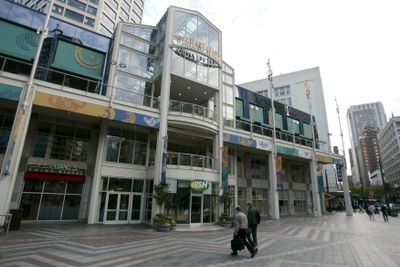Major mall owner files for Chapter 11
General Growth added $27 billion in debt during expansion

CHICAGO – General Growth Properties Inc., one of the nation’s largest mall owners, is unlikely to remain intact as it reorganizes under Chapter 11 bankruptcy, in spite of management’s wish to hold on to its cache of more than 200 shopping centers.
The Chicago-based company, owner of some of the nation’s most prominent malls, said Thursday that it filed for Chapter 11 protection from creditors, marking one of the biggest real estate bankruptcies in decades.
The company operates three malls in the Inland Northwest: NorthTown Mall, Silver Lake Mall and Spokane Valley Mall.
The Chapter 11 filing, anticipated for months, is a dramatic reflection of the collapse of the freewheeling debt environment, which devastated aggressive borrowers ranging from companies to individual home buyers.
The recession accompanying that collapse hit shopping hard, exacerbating the mall operator’s woes.
“While the retail environment didn’t help them, what did them in is they used way too much debt,” said Jim Sullivan, managing director of Green Street Advisors, a real estate investment research company in Newport Beach, Calif.
Sullivan said General Growth could be forced to sell a significant number of assets, while the chief financial officer of Simon Property Group Inc., the country’s biggest mall operator, told Bloomberg News that some of General Growth’s malls “would probably fit very well in our portfolio.”
General Growth’s president, Thomas H. Nolan Jr., said he hoped the firm would have to sell only one or two of its best malls to satisfy creditors.
But now that it is under the aegis of the bankruptcy court, it has less control over its future.
Nolan said General Growth has no plans to close any malls.
General Growth counts Ala Moana Center in Honolulu and the Grand Canal Shoppes at The Venetian in Las Vegas – where sales per square foot are estimated to be more than $1,000 – among its two dozen top-performing properties.
A healthy mall generates at least $400 a square foot.
The company warned in November that it could file for bankruptcy as it struggled to refinance mortgages on scores of properties.
The real estate investment trust amassed $27 billion in debt in an ill-timed acquisition spree five years ago that turned a family business from small-town Iowa into the nation’s second-largest shopping mall company.
It blames the frozen credit market more than the downturn in retail for its fate, noting its occupancy rate at the end of last year was a healthy 92.5 percent.
John Bucksbaum, a second-generation member of the family that founded the company, stepped down as chief executive as the crisis escalated.
He remains chairman and was at the board meeting Wednesday when the company’s fate was set.
The prominent Chicago family, General Growth’s largest shareholder, had much of its wealth tied up in the company and has seen billions of dollars of its fortune erased.